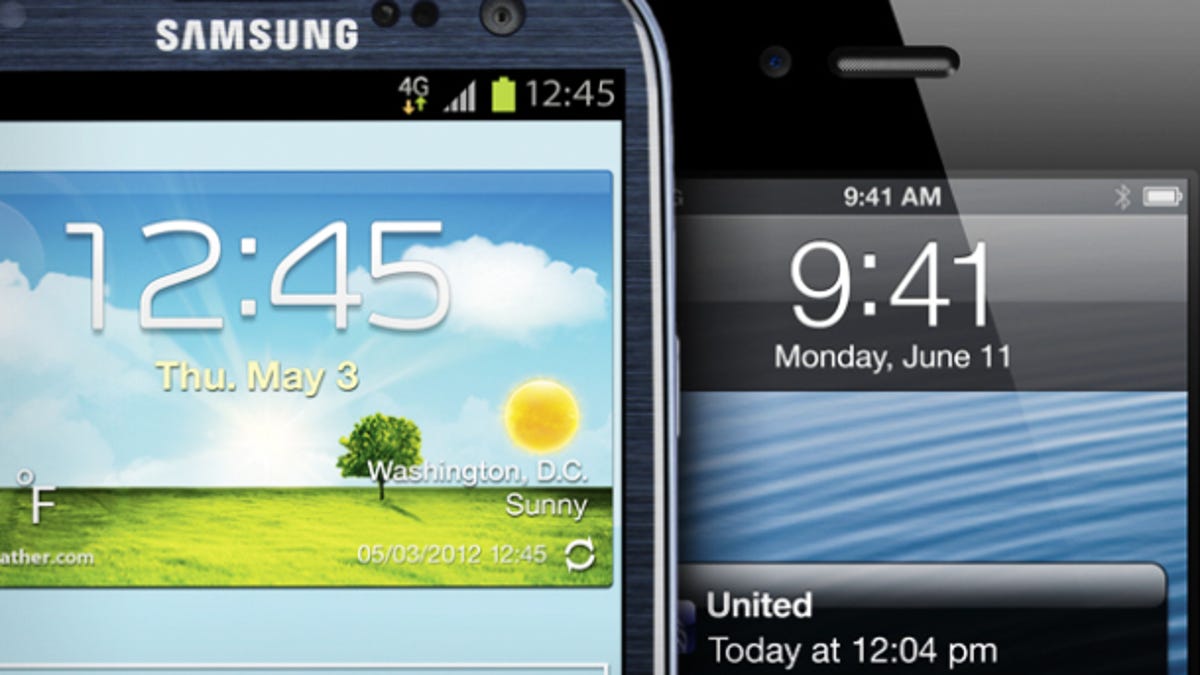Judge blasts Samsung's court strategy
The judge overseeing the U.S. legal battle between Apple and Samsung questioned Samsung's strategy, saying it burned up too much time.

SAN JOSE, Calif.-- Hours after chiding Apple for stacking up too many witnesses, the judge in the case between Apple and Samsung turned her attention to what she considered a strategical blunder on Samsung's part.
The company, she said, had burned up its time on cross-examining Apple's witnesses, versus presenting its case.
After each in a train of Apple witnesses were through with their testimony, Samsung passed on trying to cross-examine them, citing a lack of time. As a result, Apple has been able to run witness after witness with little resistance.
When the court was about to go on its afternoon break, U.S. District Judge Lucy Koh warned Samsung's lawyers that they better not try to file any paperwork saying they didn't have enough time overall.
"Samsung made a strategic decision to use more time to cross examine," Koh said. "I am not going to allow the parties to file something that says you were unable to file, because you made a strategic decision."
Koh pointed out that the company had spent 14 of its allotted 25 hours cross examining Apple's witnesses versus saving up some of that time to make its own case.
"Any inability of Samsung to present more witnesses was because of its own decisions," she said.
Earlier in the day, Koh flat out yelled at Apple for having what she believed to be too many witnesses, something that would burn up valuable time and lead to more paperwork -- a hallmark of this case, which is closing in on 1,800 filings.
Witness speed run
With some two dozen witnesses to get through and just a few hours left, Apple attempted to pick up the pace. In the span of about four hours Apple called on six witnesses, including some current and former company employees, to rebut some of Samsung's claims.
The company spent most of that time trying to invalidate some of Samsung's patents, or at least convince the jury that its devices were not infringing. That effort tapped testimony from experts Paul Dourish, Tony Givargis, and Mani Srivastava who went over two of Samsung's feature patents for things like camera roll bookmarking and MP3 music playback. Apple also called on Carnegie Mellon University professor Hyong Kim to undercut Samsung's 3G wireless patent claims.
Alongside these technical testimonies, Apple tried to appeal to jurors with more simplistic things, like how its camera software on iPhones and iPads works. That came with a multitude of video demos from former iOS software engineer Emilie Kim. There was also a brief testimony by Tony Blevins, Apple's vice president of procurement who told the court that iPhones were made up of more than 1,000 parts, including the baseband processor it bought from Intel.
The trial is currently in its final stages. At the end of the day, Apple had just under four hours left on the clock -- time it's going to use up with additional witnesses. Samsung, on the other hand, has just over 24 minutes. Closing arguments scheduled for Tuesday.
Complete coverage: Apple v. Samsung, a battle over billions
Updated at 4:40 p.m. PT with additional details.

